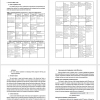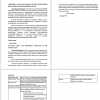Тема: «The Impact of Soft HR Practices on Employee Performance and Employee Well-Being in Crisis Times»
Закажите новую по вашим требованиям
Представленный материал является образцом учебного исследования, примером структуры и содержания учебного исследования по заявленной теме. Размещён исключительно в информационных и ознакомительных целях.
Workspay.ru оказывает информационные услуги по сбору, обработке и структурированию материалов в соответствии с требованиями заказчика.
Размещение материала не означает публикацию произведения впервые и не предполагает передачу исключительных авторских прав третьим лицам.
Материал не предназначен для дословной сдачи в образовательные организации и требует самостоятельной переработки с соблюдением законодательства Российской Федерации об авторском праве и принципов академической добросовестности.
Авторские права на исходные материалы принадлежат их законным правообладателям. В случае возникновения вопросов, связанных с размещённым материалом, просим направить обращение через форму обратной связи.
📋 Содержание
Аннотация 4
ABSTRACT 5
1. Introduction 9
2. Research goal and tasks 11
3. Theoretical background 12
1) Human Recourse Management and HR practices 12
2) Employee well-being 16
3) Employee Performance 20
4) Crisis 25
5) The role of HRM and HR practices in an organization during crisis 30
6) The impact of HRM practices on employee well-being 33
7) The impact of HRM practices on employee performance 36
8) The impact of employee well-being on employee performance 40
9) Employee well-being mediates the relationship between HRM practices and employee
performance 44
10) Crisis influence partially moderates the relationship between employee well-being and
employee performance 46
4. Research questions and hypotheses 49
5. Methodology 50
6. Received final results 53
1) Results of qualitative study 53
2) Results of quantitative study 56
1) Descriptive statistics 57
2) Common method bias 57
3) CFA 57
4) Mediation effect 62
5) Moderation effect 68
7. Conclusion 73
References 77
Appendix I 87
Appendix II 91
1) Descriptive statistics 91
2) Reliability tests 95
📖 Введение
The relevance and importance of this topic can be explained by several reasons. Firstly, the COVID-19 pandemic has created a crisis situation for many organizations and their employees. Due to this crisis situation, the role of HR practices in employee well-being and performance becomes even more critical. Secondly, HR practices have been found to have a significant impact on employee performance and well-being in normal times, and it is likely that this impact is much stronger during crisis situations. Moreover, studies, which were conducted after Covid-19 have proved it already. Thirdly, understanding the mediating role of employee well-being in the relationship between soft HR practices and employee performance is essential to developing effective HR strategies that promote both employee well-being and organizational performance. Fourthly, at this time, the world society and humanity at large has faced at the first time for this century with financial, geopolitical, epidemiological and energy crises at the same time. That is why, the necessity to find supportive tools and to measure the impact of one concept to another becomes even more crucial, relevant and vital. And the last, but not least, there was no study, which has observed the crisis influence as the moderator of the relationship between employee well-being and employee performance.
Motivation to conduct research on the impact of HR practices on employee performance and employee well-being in crisis times is driven by the following reasons, which can be justified both form theoretical and practical perspectives.
This topic is significant from a theoretical perspective as it contributes to the existing body of knowledge on HR practices and employee performance. Firstly, this topic is significant from a theoretical perspective as it contributes to arranged previously studies on HR practices and employee performance. The topic is relevant for both academics and practitioners, as it addresses the gaps in the literature on the impact of HR practices on employee performance and the role of employee well-being as a mediator in crisis times. The study can provide insights, which could prove that HR practices influence employee performance during times of crisis. Secondly, the study of HR practices and their impact on employee performance is crucial in the context of crisis times because it helps organizations to identify effective HR practices that can improve employee well-being, which in turn can enhance their performance. The study can also help organizations to develop better HR strategies to address the needs of employees during times of crisis. Furthermore, the study of the mediating role of employee well-being in the relationship between HR practices and employee performance can provide significant and valuable insights. This knowledge can help organizations to understand how to design HR practices that promote employee well-being and, consequently, enhance employee performance. Also, it is essential to find a proof that crisis influence has an impact on employee performance, which in turn has an influence on employee performance.
From a practical perspective, the topic of paper is important for several reasons. Firstly, the COVID-19 pandemic has significantly impacted the global economy, and organizations are facing challenges in maintaining employee well-being and performance during this crisis. This study can provide practical guidance to organizations on which practices should be invested in more and how to manage them effectively during times of crisis to support employee well-being and performance. Secondly, the study can also help organizations to understand the importance of employee well-being and the role it plays in enhancing employee performance. By focusing on employee well-being, organizations can create a positive and supportive work environment that fosters engagement, job satisfaction, and productivity. Finally, the study of HR practices and their impact on employee performance and well-being is relevant for organizations of all sizes and industries. This study can provide insights into effective HR practices that can be implemented in organizations to improve employee well-being and performance during crisis times. The knowledge gained from this study can be beneficial for organizations of different sectors, fields of activity and industries.
Looking in advance at the results of the conducted study it should be highlighted that employee well-being plays a role of a mediator between HR practices and employee performance, while crisis influence is a moderator of employee well-being - employee performance relationship. Coming closer to exact results, it was defined that Soft HR practices are essential for improving employee well-being and performance and, as a consequence, organizations need to pay attention to their HR practices and invest in programs and initiatives that support and improve employee well-being.
...
✅ Заключение
The study advances the understanding of the relationship between HR practices, employee well-being, and employee performance during crisis times. Specifically, the study provides empirical evidence on how HR practices influence employee well-being, and how employee wellbeing, in turn, mediates the relationship between HR practices and employee performance during crisis times. This contributes to the existing literature on HR practices, employee well-being, and employee performance by providing new insights and proves into the mechanisms that underlie the relationship between these variables during times of crisis. All references to the existing studies, researches and articles are presented and give in the discussion part of the conclusion of this paper.
Moreover, the study provides the empirical evidence on how crisis influence moderates the relationship between employee well-being and employee performance. Also, it is essential to add that due to conducted study it was figured out that the definition of awareness of crisis influence level helps to choose businesses appropriate employee well-being initiatives for supporting employee performance.
Furthermore, the study provides valuable insights for organizations on which HR practices should be invested in and how to manage their HR practices effectively during times of crisis. By identifying effective HR practices that enhance employee well-being and performance during crisis times, the study provides managerial implications for organizations to develop better HR strategies that address the needs of employees during times of crisis. This leads to improved employee well-being and performance, which have positive impacts on organizational outcomes such as productivity, employee retention, and organizational resilience.





